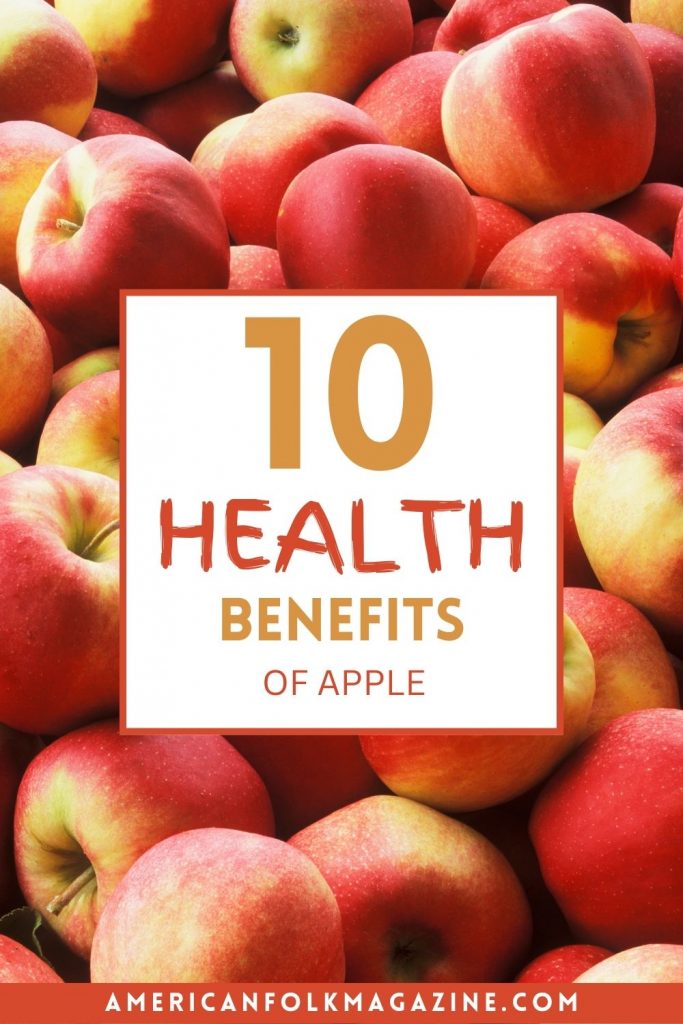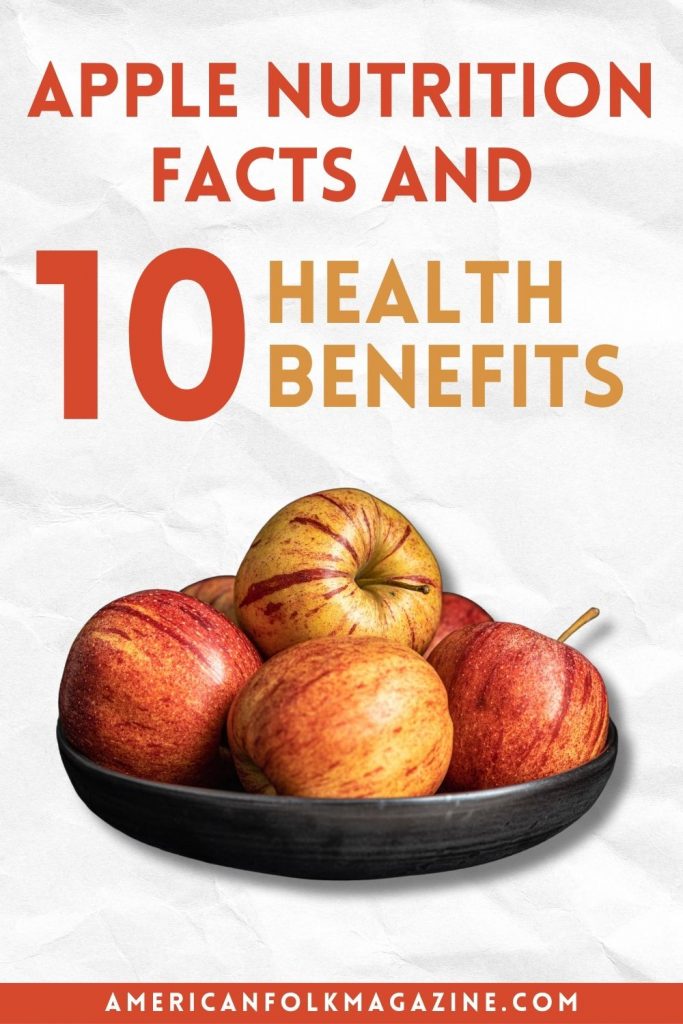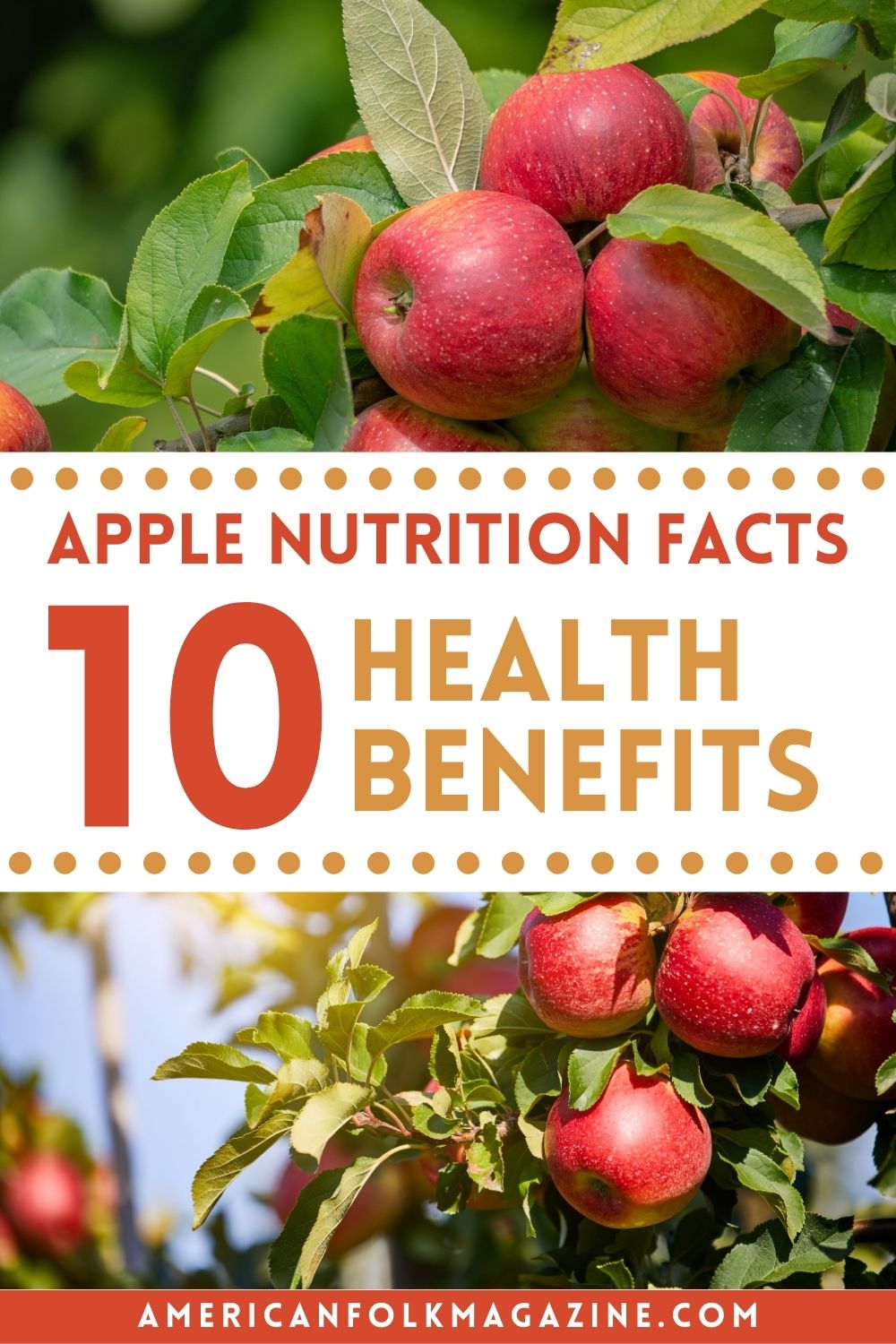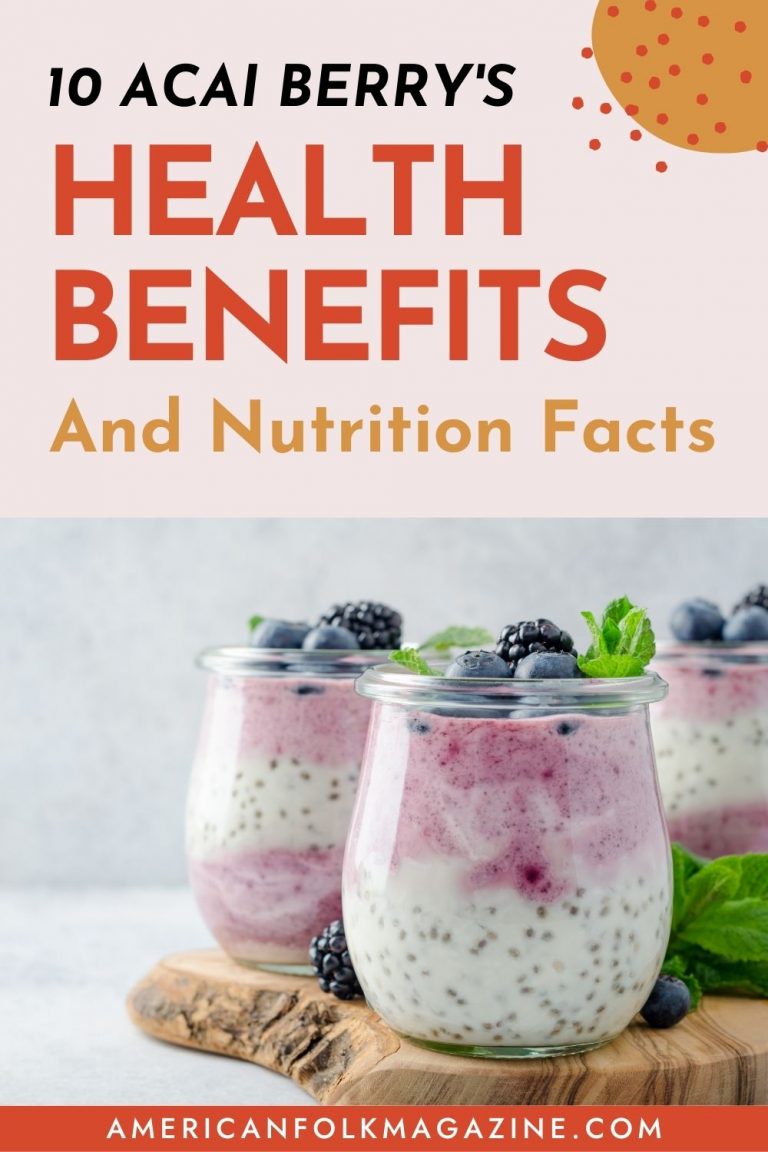An apple a day keeps the doctor away – we’ve all heard this age-old adage. But have you ever wondered why apples are so highly regarded in the realm of health and nutrition?
Apples are not just delicious and versatile fruits, they are also packed with an abundance of nutrients that can contribute to overall health in numerous ways. In this article, we will delve into the nutritional profile of apples and explore the myriad of health benefits they offer.
Apple Nutrition Facts
Before we dive into the specifics, let’s take a look at the general nutritional profile of a medium-sized apple (about 182 grams):
| Nutrient | Amount |
|---|---|
| Calories | 95 kcal |
| Protein | 0.5 g |
| Fat | 0.3 g |
| Carbohydrates | 25 g |
| Dietary Fiber | 4.4 g |
| Sugars | 19 g |
| Vitamin C | 14% of the Daily Value (DV) |
| Potassium | 6% of the DV |
| Vitamin K | 5% of the DV |
| Vitamin A | 2% of the DV |
| Calcium | 1% of the DV |
| Iron | 1% of the DV |
Detailed Breakdown of the Nutritional Content of Apples
- Vitamins and Minerals: Apples are a good source of several vitamins and minerals. They are particularly high in Vitamin C, a dietary antioxidant that helps protect your cells against the effects of free radicals. Apples also contain potassium, which can benefit heart health, and Vitamin K, essential for blood clotting.
- Fiber: Apples are rich in dietary fiber. One medium-sized apple provides about 17% of the recommended daily intake of fiber. Dietary fiber is important for maintaining a healthy digestive system, can help control blood sugar levels, and may contribute to weight management by promoting feelings of fullness.
- Antioxidants: Apples are packed with antioxidants, including flavonoids and polyphenols. These compounds help fight oxidative stress and inflammation, reducing the risk of chronic diseases like heart disease and cancer.
- Hydration: Apples have a high water content – about 85%. This makes them a hydrating snack, and staying hydrated is crucial for overall health.
- Low in Calories and Fat: Despite their sweetness, apples are low in calories and virtually fat-free. This makes them a healthy, guilt-free snack option.
Health Benefits of Apples
Apples are more than just a tasty snack. They offer a wealth of health benefits due to their rich nutritional profile. Here are some of the key health benefits of including apples in your diet:
- Improve Mental Health: A diet rich in fruits like apples can have a positive impact on mental health. Certain nutrients in apples, such as antioxidants and flavonoids, have been linked to a lower risk of depression and improved mental well-being.
- Reduce the Risk of Stroke: The high fiber content in apples can contribute to cardiovascular health. Studies have shown that a high intake of dietary fiber is associated with a lower risk of stroke.
- Lower Cholesterol Levels: Apples are rich in dietary fiber, which can help lower blood cholesterol levels. The soluble fiber found in apples binds with fats in the intestine, which translates into lower cholesterol levels and a healthier heart.
- Boost Heart Health: The antioxidant and anti-inflammatory compounds in apples, particularly flavonoids, can promote heart health. Regular consumption of apples has been associated with a reduced risk of heart disease.
- Lower the Risk of Diabetes: Apples, with their high fiber content and natural sweetness, can help regulate blood sugar levels. This can reduce the risk of developing type 2 diabetes.
- Lower the Risk of Cancer: The antioxidants in apples, particularly the flavonoids, can help fight oxidative stress and inflammation, reducing the risk of developing certain types of cancer.
- Help Maintain a Moderate Weight: The dietary fiber in apples can help you feel full, reducing calorie intake and contributing to weight management.
- Support Gut Health: Apples are rich in fiber and contain both soluble and insoluble fiber, including pectin. This helps promote a healthy gut by feeding the beneficial gut bacteria, contributing to gut health and boosting the immune system.
- Dental Health Benefits: While apples can’t replace brushing your teeth, the action of eating an apple produces saliva, which helps reduce tooth decay by lowering the levels of bacteria in the mouth.
- Other Potential Benefits: Apples have been associated with several other health benefits, including improved bone health, better pulmonary function, and even a potential protective effect against age-related mental decline.
How to Incorporate Apples into Your Diet
Apples are incredibly versatile and can be incorporated into your diet in many ways. Here are a few suggestions:
1. Fresh: The simplest way to enjoy an apple is to eat it fresh. They make a convenient and healthy snack that you can take with you anywhere.
2. In Salads: Add sliced apples to your salads for a sweet and crunchy element.
3. Baked: Baked apples can be a delicious and healthy dessert. You can stuff them with nuts and spices for added flavor.
4. In Sauces: Applesauce can be used as a low-fat substitute for oil in baking, or as a topping for pancakes and waffles.
5. Juiced: While whole apples are more beneficial due to their fiber content, apple juice can still be a refreshing drink. Just be sure to opt for 100% apple juice with no added sugars.
6. In Smoothies: Add an apple to your morning smoothie for a boost of nutrients.
Remember, the skin of the apple contains a good amount of its fiber and antioxidants, so it’s best to leave the skin on whenever possible.
Precautions and Potential Risks
While apples are generally safe for most people, there are a few things to keep in mind:
- Allergies: Some people may be allergic to apples. If you experience symptoms like itching, swelling, or difficulty breathing after eating an apple, seek medical attention.
- Choking Hazard: For young children or older adults with difficulty swallowing, raw apple pieces may pose a choking risk. Consider serving applesauce or cooked apples instead.
- Apple Seeds: Apple seeds contain a compound that can release cyanide, a toxin, when chewed or crushed. Swallowing a few apple seeds is unlikely to cause harm, but it’s best to remove the seeds before eating.
Conclusion
Apples are a powerhouse of nutrition, packed with essential vitamins, minerals, and antioxidants. Their potential health benefits range from improved mental health and heart health to lower risks of stroke, diabetes, and certain types of cancer. With their versatility and availability, apples are an easy and delicious way to boost your nutrient intake. So, go ahead and enjoy an apple a day—it might just keep the doctor away!
References
- Two apples a day lower serum cholesterol and improve cardiometabolic biomarkers in mildly hypercholesterolemic adults: a randomized, controlled, crossover trial
- Does an apple a day keep the oncologist away?
- Associations of dietary flavonoids with risk of type 2 diabetes, and markers of insulin resistance and systemic inflammation in women: a prospective study and cross-sectional analysis
- Weight Loss Associated With a Daily Intake of Three Apples or Three Pears Among Overweight Women
- Effect of chewing an apple on dental plaque removal and on salivary bacterial viability
- Apple phytochemicals and their health benefits
Pin It In Your Board











